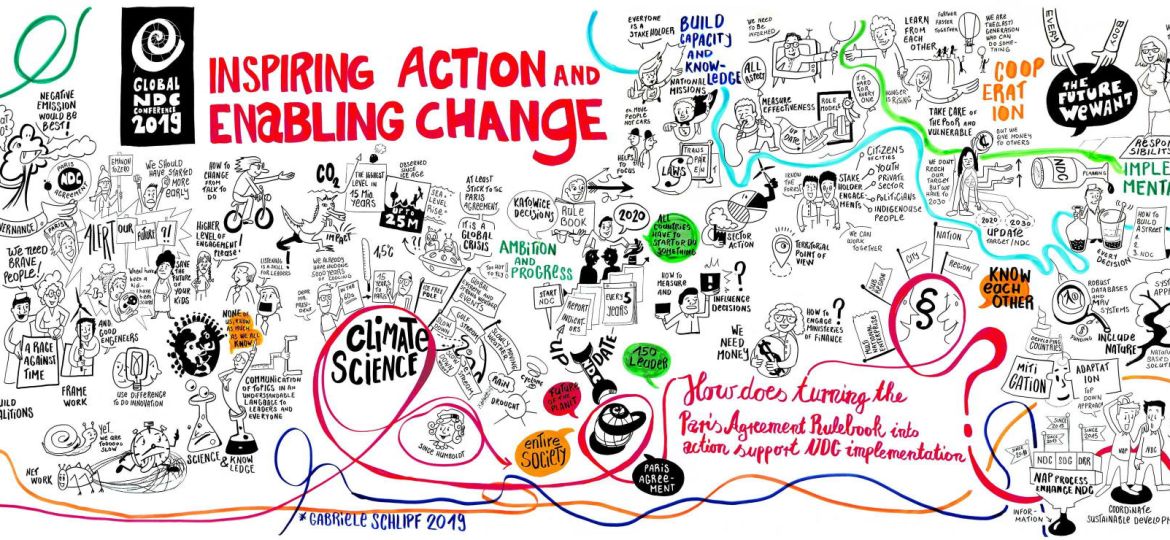
The Global NDC Conference 2019, held in Berlin from 12-14 June, provided practical support on how to finance, implement and update NDCs as well as enhance climate transparency systems. As NDC implementation advances across the globe, the conference participants shared their own cases of transformative and inclusive climate actions in the fields of integrated governance, finance mobilisation and transparency.
Conference key messages
While the Global NDC Conference 2019 was a technical, rather than a political conference, its key messages can inform the efforts of governments, international agencies, development banks, researchers, non-governmental, and private actors in their efforts to ramp up climate ambition.
The conference provided new insights on NDC implementation and NDC updates supported by in-country examples and tools that have the potential to be scaled up. Of more than 100 country examples and good practices, 13 key insights of successful NDC implementation and ambition raising were extracted and are outlined in the Synthesis paper: Insights and innovations from the Global NDC Conference 2019.
The conference recognised the importance of systemic leadership by individuals, organisations and countries in responding effectively to the climate crisis. The publication Lead the change: Systemic leadership for NDC implementation and raising ambition brings together current and emerging insights.
Private sector engagement was an important cross-cutting theme at the conference. For example, the breakout session “Strengthening NDC ambition and accelerating implementation through private sector engagement” showcased practical examples and addressed the issue of transparency, raising ambition, and mobilising climate finance. Highlights of this session include the need for gathering and sharing information. Global disclosure among investors, companies, cities, states, and regions is, therefore, key to build trust, clarity, and confidence for both managing environmental impacts and unlocking further investments in climate solutions.
While climate change threatens livelihoods across the world, women and girls commonly face higher risks and greater burdens from climate change. Yet, women and girls are not only at risk but are also powerful agents of change, as experts and leading decision makers at international, national, sub-national, household, and community level. Harnessing this power and ensuring equal rights and access to resources will help us to reach our collective goals more effectively and set more ambitious climate targets for the future. Recognising the importance of inclusive planning for ongoing climate action efforts, gender and social inclusion was an important cross-cutting topic of the conference.
The Global NDC Conference 2019 featured targeted efforts to bring out the gender perspective by encouraging engagement through asking questions, sharing examples differing perspectives, and reflections. A gender lens was applied throughout the conference in the plenary sessions, breakout groups and working group sessions. An anti-harassment policy was also put in place with the purpose of providing a harassment-free conference experience for everyone, regardless of gender, gender identity and expression, sexual orientation, disability, physical appearance, body size, race, age, or religion.



